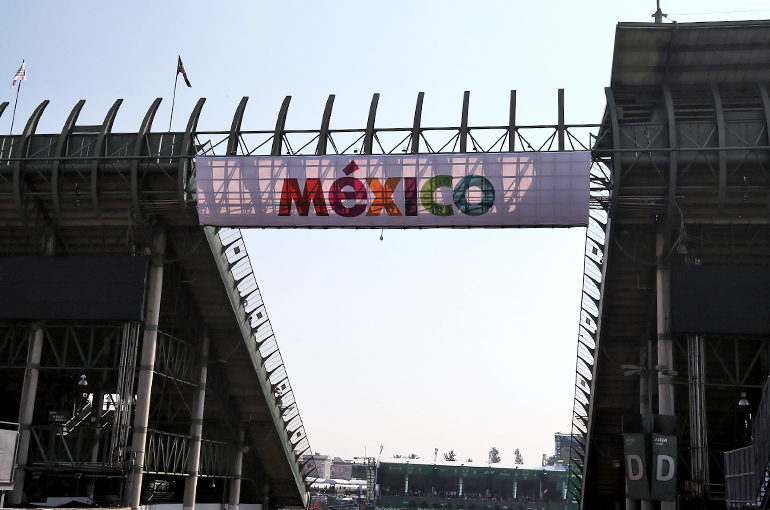 Chinese Firms Make a Stop in Mexico to Export to US Amid Trade Frictions
Chinese Firms Make a Stop in Mexico to Export to US Amid Trade Frictions(Yicai) May 29 -- Chinese companies are increasing their investment in Mexico to export goods to the United States amid trade frictions between the world's biggest and second-biggest economy.
Mexico replaced China as the top source of goods imported to the US last year as its share surged to 15.4 percent while China's portion declined to 13.9 percent. China's exports to the US peaked in 2017, making up 21.6 percent of the total. The Asian nation held onto its top position for years after surpassing Canada for the first time in 2007.
Higher tariffs are the main reason for the latest decline in Chinese exports. The Trump administration raised import duties on four lists of Chinese goods worth USD370 billion. The tariffs range from 7.5 percent to 25 percent, accounting for over 70 percent of China’s exports to the US at the time. The Biden administration has not majorly changed the playbook.
The Mexico Route
However, the data fail to show Chinese companies' aggressive shift of production to other countries. In this process, Mexico has become one of the key transit points for Chinese goods to the US.
Due to the trade tiff, China has risen to become Mexico’s fastest-growing investment source. China’s direct investment in Mexico doubled in 2018 from 2017 and reached an all-time high of USD600 million in 2022, according to official data from the Latin American country.
Chinese companies are spending the most on manufacturing in Mexico and auto production is one of the key industries. Chinese makers of cars and car parts, including Jianghuai Automobile Group, Geely Holding Group, and Tuopu Group, have poured money into the North American country in the past few years. Moreover, BYD, SAIC Motor, and Chery Automobile plan to build local factories.
Mexico is one of the world’s biggest producers of home appliances, and more than four-fifths of its products are exported to the US. In 2021, Hisense Group, a Chinese maker of television sets, spent USD260 million to set up an industrial park in Mexico. Midea Group, Changhong Meiling, and Gree Electric Appliances are also preparing to invest in the country that shares a border with the US.
Along with the wave of new plants, Mexico increased its imports of China-made goods. In 2022, Mexico imported USD118.7 billion worth of goods from China, up 60 percent from 2017. Some of the products entered local homes while others were further delivered to the US.
A closer look into the composition of Mexico's imports from China shows that most items were products bearing high US tariffs. The top three products in 2022 were electrical and electronic equipment, mechanical equipment, and vehicles, with an import value of USD40.7 billion, USD23.6 billion, and USD7.9 billion, respectively.
Advantages and Challenges
Mexico is a natural trading partner and manufacturing base for the US.
The border between the two nations spans over 3,100 kilometers, with 40 border crossings, allowing convenient and economical transport. Goods from Mexico can be delivered to any location in the States within 48 hours.
In addition to the geographic advantage, Mexico’s exports to the US carry low tariffs due to the North American Free Trade Agreement. For example, vehicles exported to the US are subject to a 2.5 percent tariff, one-tenth of that of China-made cars.
Moreover, Mexico has a large labor force of young people. In 2022, the country had a population of 128 million, with an average age of 28.8. Labor costs are also low. In addition, the nation has a complete industrial base and the government is open to introducing more foreign investment.
However, Chinese companies still need to pay attention to policy changes. The US has tried to restrict the development of Chinese enterprises in Mexico through secondary sanctions. Under pressure from the US, Mexico raised tariffs on imports from 392 countries, including China, by 5 to 25 percentage points last year.
About the Authors:
Wen Bin is the chief economist of China Minsheng Bank.
Zhang Mengting is a macro researcher at the China Minsheng Bank Research Institute.
Editors: Dou Shicong, Emmi Laine